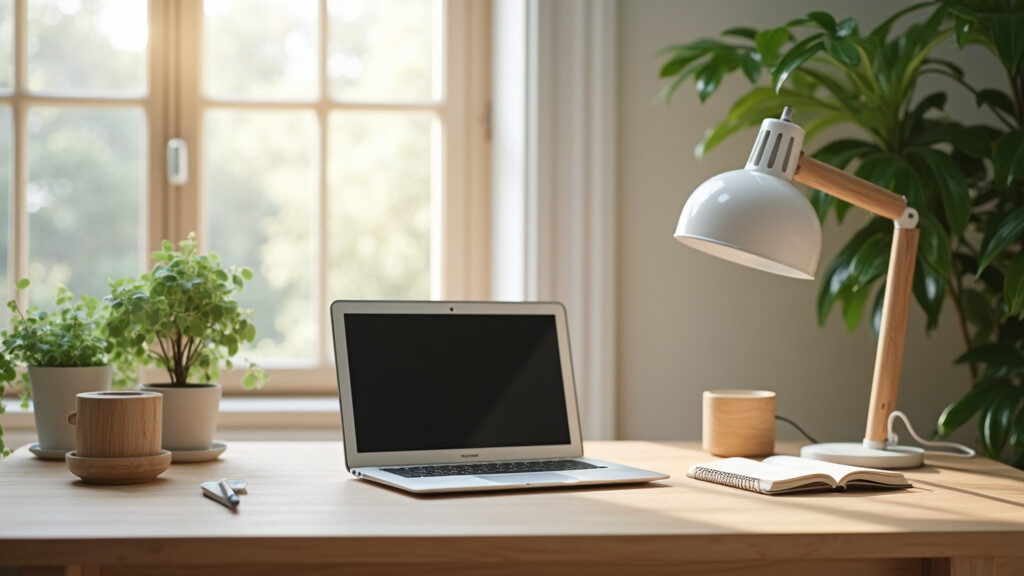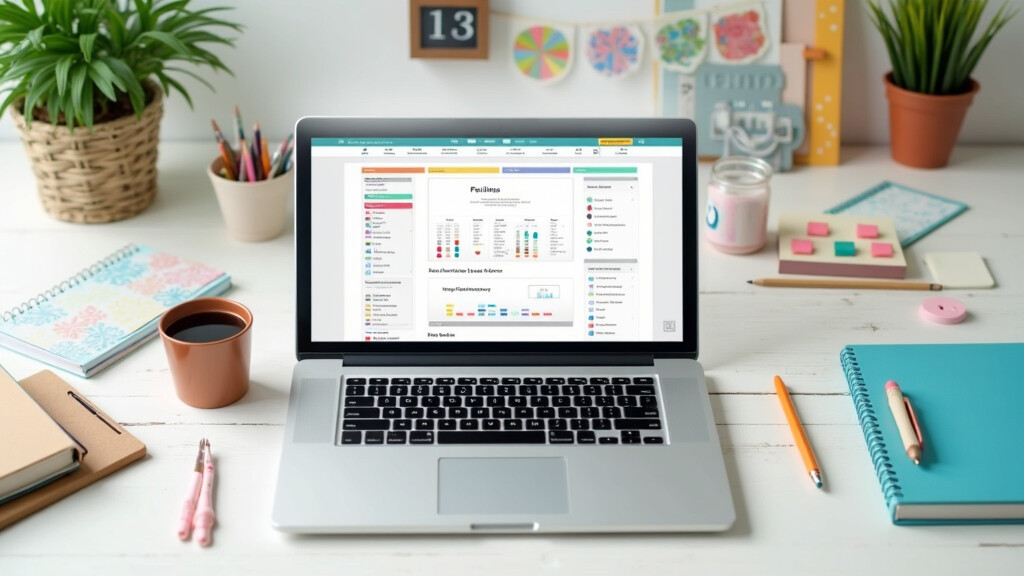Starting a freelance business from home can completely switch up your work life. People chase freelancing to be their own boss, enjoy a flexible schedule, and because it’s actually pretty doable without a fancy office.
The big challenge is getting things off the ground, staying consistent, and turning small wins into regular income. I’m sharing everything I’ve learned about getting a freelance business rolling from the comfort of your own place.

Building Your Foundation for Freelancing Success
Knowing how to set yourself up seriously changes the outcome before you land your first client. Freelancing means you’re in charge, not just of the actual work, but also of your business decisions. This is exciting, but it can feel like a lot to handle the first time. The freelance economy keeps growing and, with so many tools available, getting started is more straightforward than it’s ever been.
You want the basics to be rock solid. Home-based freelancing lets you skip commutes and office politics, plus gives you more control over your day. Still, working from home also means you need to stay focused and create a routine to keep yourself on track.
Setting up a business structure, handling simple bookkeeping, and treating your freelancing like a real job (because it is!) makes a huge difference. The freedom is awesome, but the responsibility is real, too.
The popularity of home-based freelance businesses is rising fast in design, writing, web development, consulting, and more. Building a simple workspace at home, like a decent chair, a table or desk, and good internet, helps you stay comfortable and productive.
Setting clear boundaries with family and friends to respect your work hours makes a big impact, especially at the start, when people don’t always get that you’re actually working. Having a home office vibe, even if it’s a corner, lets you flip the mental switch into work mode.
Getting Started: What You Really Need to Begin Freelancing
The biggest block for a lot of first-time freelancers is figuring out what they need before pitching their first client. You don’t need much to get started, but there are a few things you want right away to make things easier on yourself:
- Reliable Computer and Internet: Most work happens online. Make sure your technology is up for it so you can avoid annoying delays.
- A Clear Portfolio or Examples: If you don’t have client projects yet, mock up samples to show off what you can do.
- Payment Setup: Tools like PayPal, Stripe, or a simple invoicing system let clients pay you easily and quickly.
- Separate Email and Calendar: Keeping work and personal emails apart helps you stay on top of messages and deadlines.
- Basic Contracts: Using a template (you can find free ones online) protects both you and your clients.
As you build up some experience, you can start exploring tools for project management, time tracking, or scheduling appointments. None of these are needed at the start; they’re just things that can grow with you as your business picks up.
Booming freelance fields include graphic design, content writing, marketing, online tutoring, and virtual assistance. Picking a niche helps you stand out.
For example, if you’re a web designer, focusing on small business websites, or if you’re a writer, picking a subject area makes it easier for clients to find you. Focus on what feels interesting and where you already have some skills, and you’ll get more traction.

Step-by-Step Guide: Launching Your Home Freelance Business
Kicking off your freelance business from home isn’t about a huge leap. It’s a bunch of smaller, practical steps. These early moves set the tone:
- Choose Your Service: List what skills you’re most comfortable with, then check what people are paying for online in those areas.
- Set Up Your Workspace: Claim a small area you can dedicate to work, even if it’s just a corner in the kitchen or bedroom.
- Build Your Online Presence: Use a free portfolio site or a basic website to display your work, and make LinkedIn or other relevant profiles shine.
- Find Your First Clients: Reach out to friends, former coworkers, or sign up for platforms like Upwork, Fiverr, or specialized job boards. Don’t be shy about letting people know you’re taking on clients.
- Send Professional Proposals: Keep proposals clear and focused. Use templates to save time, but customize each message for the job.
Each time you land a project, save examples and note what went well. Your portfolio really matters, especially when you barely have reviews or referrals.
Simple things like responding quickly to messages, finishing work on time, and communicating well turn one-time gigs into repeat business fast. Referrals show up pretty naturally when you treat clients this way.
What to Watch Out for When Starting Out
It’s normal to face some challenges launching a freelance business from home. Knowing what you might run into helps you dodge the headaches. Here are some classic pitfalls:
- Isolation: Working from home can get lonely. Regular phone calls, video chats, or connecting in online communities can keep you plugged in.
- Scope Creep: Sometimes clients ask for more work than was agreed upon. Having a simple contract that’s clear about deliverables helps you stick to the plan.
- Getting Paid Slowly: Chasing late payments happens, so ask for a deposit up front and use software to track invoices.
- Time Management: Without a boss, it’s easy to work odd hours or procrastinate. Setting daily work blocks or using an app like Toggl or Clockify helps.
- WorkLife Balance: When your office is home, turning work off can be hard. Make a routine with shutoff times and maybe add in walks or daily breaks.
Freelancing also means learning to say no sometimes. Not every job is worth your energy or fits your skills, and that’s totally okay. I’ve found working with the right clients is way better than taking every gig possible. Building a good reputation and making sure you don’t burn out pays off in the long run.

Tips and Tricks for Freelancers Working from Home
There are a bunch of small moves that help you stay productive and happy while freelancing from home. Here are a few I lean on:
Make a Real Routine: Early on, I started work at the same time most days, took a lunch break, and set an end time. I spent a lot of time getting things going, but once I did, less time was required to maintain my online business.
Automate Repetitive Tasks: Templates for emails, quick response messages, and automated invoice reminders save a ton of time. If you’re sending similar proposals, use a base draft and just tweak the details.
Always Be Learning: Taking a free class on Coursera or watching YouTube tutorials means your skills stay sharp. Even a little bit of new knowledge can open up better-paying projects. Subscribing to industry blogs or newsletters keeps you in the loop, too.
Set Small Goals: I break up projects into tasks or milestones. Crossing small things off keeps me motivated and helps bigger projects feel less overwhelming.
Ask for Feedback: Getting client feedback is super important. Positive reviews help you land more work, and constructive criticism helps you improve your process.
Staying organized, building systems that make sense to you, and keeping up with trends in your niche keep things rolling smoothly.
Freelancers who adapt fast are usually the ones who end up doing the best. And don’t underestimate the value of networking. Connecting with other freelancers can lead to collaborations, support, and new project opportunities, all from the comfort of your home.
Freelance Home Business: Key Tools to Help You Succeed
The right tools can turn headaches into simple tasks. A handful of apps and software make home-based freelancing easier. These are some I’ve found super useful:
- Google Workspace or Microsoft Office: Cloud-based document creation, spreadsheets, and video calls.
- Trello or Asana: For project management and task lists, both are free at the start and easy to use.
- Slack or Discord: If you work with remote teams or multiple clients, these keep conversations organized.
- Canva: For design, even if you’re not a pro. It’s handy for making social posts, flyers, or presentations fast.
- Wave or FreshBooks: To handle invoices, tracking payments, and basic accounting. Wave’s free plan suits most new freelancers.
I also recommend a good password manager and a cloud backup solution, so your work isn’t lost if your computer has issues. These might sound small, but they help you spend less time fixing stuff and more on actual business. Another overlooked helper is a focus timer or Pomodoro app, which helps you break your day into productive blocks and keeps distractions at bay.

Frequently Asked Questions
Lots of new freelancers have the same questions in the early days. Here are some answers to things I wondered about, too:
Question: How do you find your first clients?
Answer: I started by reaching out to my own network, then used Upwork and LinkedIn. Make your profiles look professional, and offer a small discount or bonus for first-time clients if it feels right.
Question: Should you work with written contracts?
Answer: Yes, even for smaller jobs. Free contract templates are online, and these save you stress if there’s ever a disagreement down the road.
Question: How do you know what to charge?
Answer: Check what others are charging on freelance platforms, and think about the time and skills each project needs. Start in the middle, not too low or too high, and adjust as you gain reviews and experience.
Ready to Start Your Freelance Adventure?
Launching a freelance business from home means being your own boss and managing your time, money, and well-being. Building a good routine, working with the right clients, and using simple systems really help. Even when things are slow, every project and conversation teaches you a little more. Having a home setup that supports your work goals takes you far.

If you’re thinking about starting, just know it doesn’t have to be perfect. Being persistent, organized, and clear about what you offer are the real keys to growing into a business you can be proud of, one client at a time.
Want more tips, resources, or have a question about starting your freelance career from home? Visit my resource page or leave a comment below. I love helping people turn their freelance dreams into reality, and working from anywhere, even an RV, is totally possible with the right approach.
____________________________________________________
To learn more about Howard, you can check out this article.
My involvement in operating an online business began in 2014, and I didn’t do it alone! Online success requires hard work, perseverance, and assistance to learn these skills.
Freelance jobs are a great way to start out, but to create an online business that can duplicate your efforts and generate ongoing income, affiliate marketing is the way to go!
The industry is constantly evolving, particularly with the rapid growth of Artificial Intelligence (AI) in the online world.
If you want to learn how to create great website content with AI easily and have an online business that generates income 24/7, 365, then you may want to check out how I did it.
I used this source to learn, engage with others for assistance, and create online income using multiple affiliate marketing sources.
You can also reach out to me by leaving a comment below. I will get back to you!
======> Can You Afford Not to Make Money Online? <======Home-based
